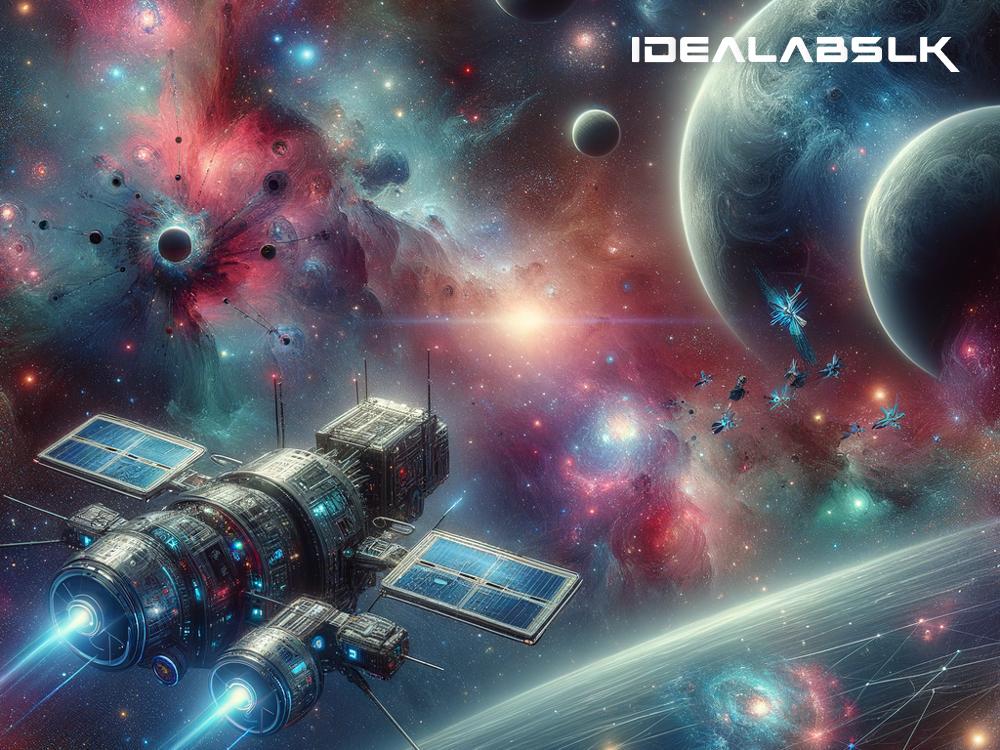How AI and Space Exploration Are Unveiling the Universe's Secrets by 2024
Space, the final frontier, has always captured human imagination. From ancient astronomers to modern scientists, the quest to understand the cosmos has been an ongoing adventure. In the past, we relied on telescopes and our own observations, but now, a new player has entered the game—Artificial Intelligence (AI). By 2024, AI, along with advances in space exploration, is set to transform our understanding of the universe in ways we've never imagined before.
AI: The Unsung Hero of Space Exploration
AI, in simple terms, is a type of computer software that's really good at learning and solving problems. Imagine a robot that can learn to play chess just by playing a lot of games, getting better each time. Now, apply that concept to space exploration. Instead of playing chess, these AI systems analyze huge amounts of data from space, learning new things about the universe at a speed and depth impossible for humans.
For instance, AI is phenomenal at spotting patterns. In the vast emptiness of space, finding a new planet, star, or galaxy needle in a cosmic haystack is a colossal task. AI algorithms can sift through data from telescopes, both on Earth and in space, to find anomalies that could indicate new celestial bodies or phenomena. This ability amplifies our chances of discovering new exoplanets, galaxies, and maybe, just maybe, signs of life beyond Earth.
AI's Role in Deep Space Communication
Communication with distant space probes is a slow and tricky process. Signals can take hours or even days to travel from Earth to a spacecraft on the edge of our solar system and back. AI can optimize these communications, ensuring that the data we receive is of the highest quality and that commands sent to space probes are executed perfectly. It also can predict potential issues with spacecraft or their instruments, often before they happen, by analyzing the data it receives, ensuring that missions last longer and yield more scientific bounty.
Virtual Space Explorations
AI is creating opportunities for virtual space explorations too. With AI, we can simulate and explore distant planets and systems from Earth. These virtual missions can help plan real-life explorations, determining the most interesting or valuable locations to study. This capability is particularly crucial as we aim for manned missions to Mars and beyond, allowing for safer and more strategic exploration planning.
Accelerating Astronomic Discoveries
AI doesn't get tired. It can work 24/7, processing and analyzing data far quicker than human teams. This relentless work ethic means that by 2024, we can expect an acceleration in our rate of discovery. AI is helping us map the cosmic microwave background radiation, understand the structure of galaxies, and even listen for signals from intelligent life forms. Each of these endeavours, hugely time-consuming and complex, is made more feasible and faster with AI.
Enhancing Telescope Power
In space exploration, telescopes are our eyes, letting us see far into the distance. By 2024, AI is expected to significantly enhance the power of our telescopic 'eyes.' Through techniques like machine learning, AI can filter out cosmic noise and refine images. This ability means that we get clearer, more detailed views of distant galaxies, stars, and planets. Thus, AI not only helps us see further but see better.
Conclusion
Space exploration and AI are like peanut butter and jelly—a perfect match. As we step into 2024, this partnership is on the brink of taking our understanding of the universe to new heights. AI is not just a tool but a revolutionary force that is making space exploration more efficient, more detailed, and far-reaching. It's turning the tide in our cosmic quest, bringing us closer to answering age-old questions about our place in the universe.
The future of space exploration, bolstered by AI, promises a universe of possibilities. As we stand on this frontier, one thing is clear: the journey into the mysteries of the cosmos is just getting started, and it's more exciting than ever.
Remember, as we peer into the vast unknown, it's not just about discovering new worlds or galaxies. It's about understanding the marvel that is our universe. And with AI and space exploration hand in hand, who knows what mysteries we'll unveil by 2024? The universe is vast and full of secrets, and we're just starting to scratch the surface. Join us on this incredible journey as we continue to explore the great beyond, powered by the brilliance of human curiosity and the unparalleled capabilities of AI.

